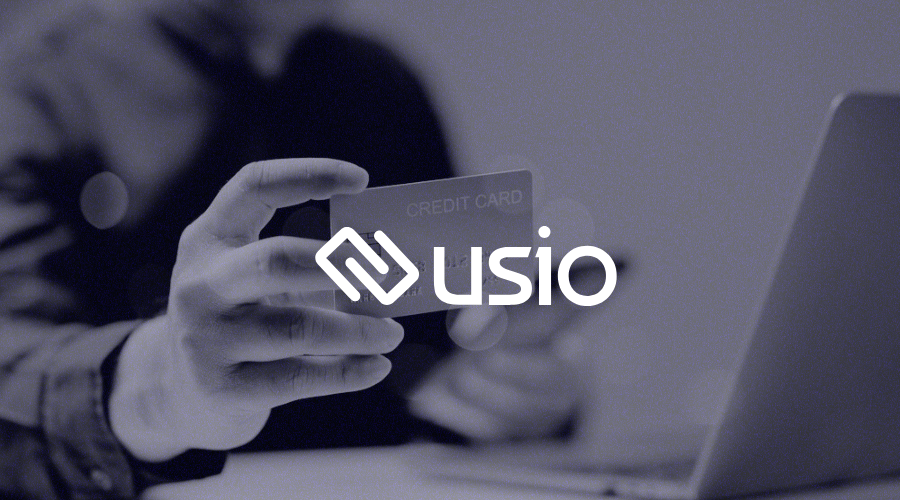If you’re building software—whether it’s a CRM, ERP, healthcare platform, fitness app, or donation platform—there’s one powerful revenue stream you might be missing: embedded payments.
Before your eyes glaze over, hang tight. This isn’t just another fintech buzzword. Embedded payments are a real, scalable way to increase revenue without raising your prices or changing your core product. It’s passive income, built-in monetization, and user stickiness all in one. In this article, we’ll break down how embedded payments work, show you how revenue share fits in, and answer the big question: Where does the money actually come from? By the end, you’ll see why software companies—from scrappy startups to growing SaaS platforms—are embedding payments directly into their products and watching the revenue roll in.
What Are Embedded Payments?
Embedded payments let your users process payments directly within your software. No need to redirect them to a clunky third-party site. No juggling logins. It’s seamless, fast, and feels native to your platform. Think about apps like Uber. You hop out of the car and—boom—the payment happens like magic. That same smooth, invisible experience is what your users get when you embed payments in your platform. But embedded payments aren’t just about convenience. They’re about monetization. When you embed payments, you can earn a cut of every transaction happening on your platform through revenue sharing.
Let’s take a closer look.
The Embedded Payments Revenue Example: Let’s walk through a real-world scenario. It’s easier than you think to generate meaningful revenue through embedded payments. Suppose your software platform has 1,000 active users.
- Now imagine 80% of them—800 users—start accepting payments through your embedded payments system.
- If each of those users processes $20,000 per month, that’s $16 million in total monthly volume.
- With a 0.40% net revenue share, that turns into $64,000 per month in revenue. That’s $768,000 per year in your pocket.
- Yes, that’s over three-quarters of a million dollars annually—just for embedding payments into your platform.
- This is the magic of embedded payments: recurring revenue that grows alongside your user base and transaction volume.
But Where Does That Money Come From?
Great question. To understand how embedded payment revenue is generated, let’s demystify the flow of funds.
Interchange Fees: The Backbone of Every Transaction
Every time a customer pays with a debit or credit card, an interchange fee is collected. This is a small percentage of the transaction (plus a flat fee) that merchants pay for accepting cards.
These fees are set by the card networks—Visa, Mastercard, Discover, and American Express—and compensate issuing banks for fraud risk, transaction handling, and infrastructure.
Credit card interchange fees tend to be higher than debit cards.
Fees can vary based on the card type, transaction size, and industry.
Interchange is one component of what makes payment processing profitable.
Payment Facilitator Fees: Your Revenue Share Engine
When you work with a Payment Facilitator (PayFac) like Usio, you don’t need to become a licensed processor yourself. Instead, Usio acts as the intermediary, underwriting your users, managing compliance, and handling the nitty-gritty of payment operations.
Here’s where it gets good: you get a share of the transaction fees. Usio earns revenue from each transaction processed on your platform, and we split that revenue with you. This is called revenue share, and it’s how embedded payments become a steady stream of income for your business.
Why Not Just Become a PayFac Yourself?
Tempting idea, right? But becoming a PayFac on your own is not for the faint of heart. Here’s what it takes:
- $1–2 million in upfront investment
- 12–18 months to launch
- A sponsor bank relationship
- Full PCI and Nacha compliance
- A dedicated team of risk, fraud, onboarding, and support staff
It’s a massive lift, especially for software companies that want to stay focused on their core product. By partnering with Usio, you skip all of that. You can embed payments in weeks, with a full white-labeled solution and a revenue share model ready to go.
Why Choose Usio for Embedded Payments?
We get it. There are a lot of payment platforms out there. So why work with Usio?
1. We’re Built for Softwar-as-a-Service (SaaS)
Usio specializes in embedded payments for software companies. Whether your vertical is healthcare, lending, education, non-profit, fitness, or legal—we’ve done it, and we know how to scale with you.
2. White-Labeled Experience
Your users see your brand at every step. Usio powers the infrastructure, but the look, feel, and functionality are all yours. That means a smooth, trustworthy experience that reinforces your value—not someone else’s.
3. Generous Revenue Share
Unlike Stripe and other big processors who limit or exclude small-to-midsize companies from revenue share, Usio prioritizes revenue sharing with platforms like yours. Many of our partners earn $1 million+ annually from embedded payments alone.
4. Real Support from Real People
Stripe may be famous for its code, but not for its customer service. At Usio, you get direct access to Certified Payment Professionals—a real team that picks up the phone, answers emails, and helps you (and your users) succeed.
5. Built-In Security & Compliance
We’re PCI Level 1 certified, Nacha certified, and fully U.S.-based. We’ve been doing this for over 25 years, and security is baked into everything we do.
Where Embedded Payments Work Best
Embedded payments are perfect for vertical SaaS platforms—especially those where users accept payments, disburse funds, or manage billing. Here are some of the industries where embedded payments are driving big results:
- Healthcare SaaS: Collect copays, patient balances, and insurance payments
- Lending Platforms: Loan disbursements, repayments, origination fees
- Insurance Tech: Premium collections, claim disbursements
- Education Software: Tuition, registration, event fees, fundraising
- Non-Profit SaaS: Online donations, Text2Give, recurring giving, donor management
- Legal Case Management: Retainers, invoicing, trust fund accounting
- Fitness SaaS: Membership dues, class bookings, merchandise payments
- Gig Economy Apps: Worker payouts, tipping, instant disbursements
- Membership Platforms: Subscriptions, renewals, upsells
- Transportation & Logistics Software: Freight payments, fuel reimbursements
If your users need to move money, embedded payments can help—and you can earn revenue while improving their experience.
Final Thoughts: Embedded Payments Are the Future of SaaS Revenue
The biggest payment processors quietly use revenue sharing to reward major retail brands. But they often exclude the very companies pushing innovation forward: SaaS platforms like yours. Usio flips that model. We believe embedded payments—and the revenue that comes with them—should be available to every platform ready to grow.
We’re here to help you:
- Launch embedded payments fast
- Deliver an amazing, white-labeled experience
- Earn revenue on every transaction
- Get world-class support along the way
About Usio
Usio is a publicly traded fintech company trusted with billions in transactions every year. We offer embedded payment solutions including:
- Card and ACH processing
- Prepaid card issuing (physical & digital)
- Hosted payment pages
- Print and mail invoicing
- Text2Pay
Account verification and compliance support
With 25+ years in business and a deep bench of payment professionals, Usio is the engine behind high-growth platforms across the U.S.
Contact Usio today for a free consultation and see what embedded payments can do for your software.











